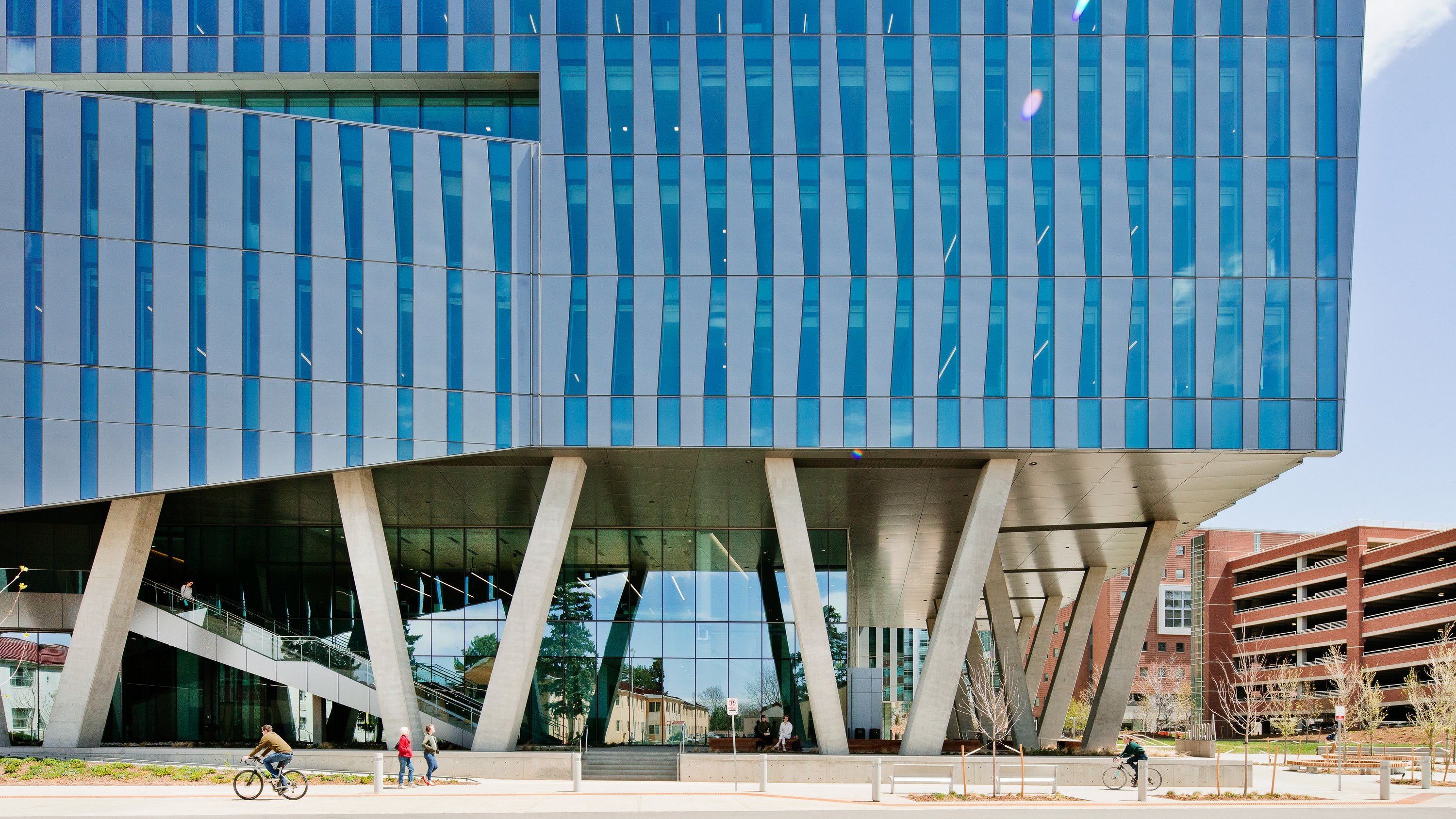When Shane Ridoux and Emily Aaron graduated from college with math degrees, neither had genomics as a future career option on their radar. Now, after two months into a new graduate degree program partnership between the University of Colorado Department of Biomedical Informatics (DBMI) and the CU Denver Department of Mathematical and Statistical Sciences, the two say they’re excited about joining the burgeoning field.
“The more I learn, the more I want to know,” says Aaron, who graduated from Metropolitan State University of Denver with degrees in math and biology. “I want to be able to identify unique genome regions that are associated with different diseases that we haven't found before or identify how to help treat people with certain diseases. That's just not something I ever thought about before being in this program.”
Audrey Hendricks, PhD, associate professor of biomedical informatics, collaborated with faculty at CU Denver’s downtown campus and Metropolitan State University to create two research pathways in genomic science. Five-year grants awarded earlier this year by the National Human Genome Research Institute — totaling more than $3 million — will fund the two partnerships.
Ridoux and Aaron are part of the first cohort of Pathways in Genomic Data Science (PATH-GDS), a partnership with CU Denver’s Department of Mathematician and Statistical Sciences, supporting master of sciences students in data science-related fields to receive genomics research training.
Pathways in Genomics Research Experiences for Undergraduates (PATH-GREU) is expected to launch in early 2024, and partners with Metropolitan State University of Denver (MSU), a Hispanic Serving Institute, to invite students from diverse backgrounds to participate in paid fellowships to learn more about genomics.
Recruiting, retaining, and training
The two programs are built on the idea that once you’re a PATH scholar, you’re always a PATH scholar, says Hendricks, who is leading the programs along with CU Denver associate professor Joshua French, PhD, director of data science, DBMI professor Leslie Lange, PhD, and MSU faculty members Kristy Duran, PhD, and Hsiu-Ping Liu, PhD.
“It can be really powerful to recruit scholars from our own communities in Denver and the Mountain West region, train them to be mentors, and keep that cycle going,” Hendricks says. “It’s also crucial to build a diverse and representative community of genomics researchers – which is what we aim to do here.”
The programs are structured so that students complete three eight-week rotations and a longer 17-month immersive research experience over the two-year program. Along the way, the students experience different labs and types of genomic research. Ridoux says his first rotation has been an eye-opening experience.
“I know now that I want to do more in personalized medicine,” he says. “I’ve been thinking a lot about pharmacogenomics, and I had never even heard of that as an undergraduate student, but I like the idea of creating effective treatments and analyzing different research trials.”
The cohort of pathways students are partnered with a near-peer mentor – another way Hendricks says the program is building a mentorship network for the scholars.
“It’s important to have somebody you can relate to in the genomics community,” she says. “By pairing our scholars with mentors that are one step ahead of them in their career stage, we hope they can better relate and connect.”
Enhancing diversity among the genomics community
Recruiting people from diverse and representative backgrounds is essential in biomedical and genomic sciences, Hendricks says.
“Representation is vital because it brings points of view that we might not have otherwise. It enriches the research questions we ask and how we complete the research,” she adds. “One of my major goals is to train the next generation of scientists, critical thinkers, and statisticians. I want them to be as diverse and representative as possible, which means having people from different socioeconomic backgrounds, races and ethnicities, and life experiences.”
The programs emphasize the importance of diversity while aiming to introduce genomic sciences to a variety of students.
“With these pathways we’ve tried to remove barriers to recruitment, training, and retention, which we think are often financially and community based,” Hendricks says. “We’re providing a stipend and paying for full tuition to make this as much of a living wage environment as possible. We want to enable students to train near their home, so that they can, if desired, continue to work and grow here building our genomics community.”
The hope is that the cycle will repeat itself, that students like Aaron and Ridoux can continue on to mentor and recruit others into genomics. The two say the cyclical nature of the programs are already in motion. Ridoux and other mentors have volunteered at a high school science fair and talked to students about their own path in genomics.
“The goal is to create a genomics community where people can experience a sense of belonging and develop their identity as genomic researchers and scientists,” Hendricks says.


.png)

